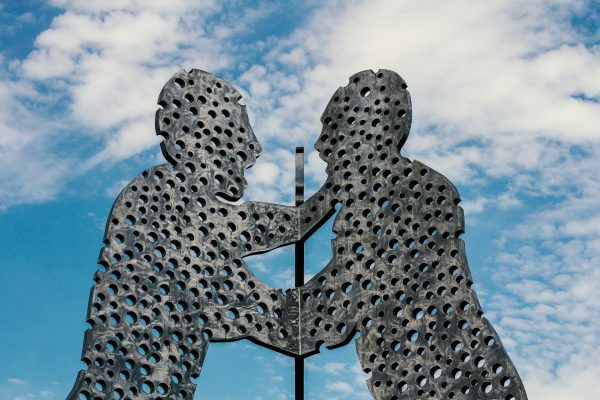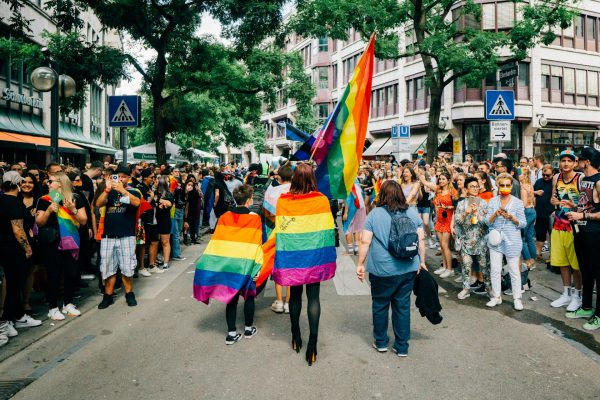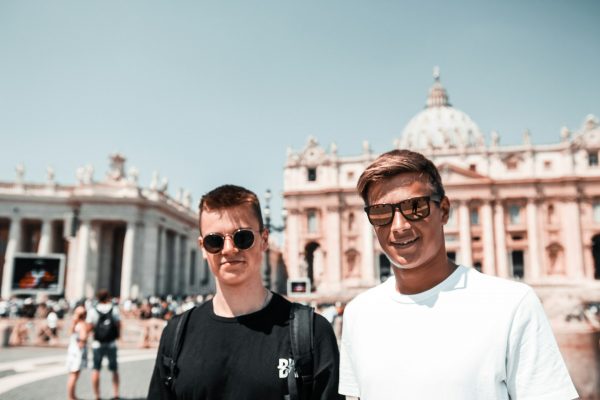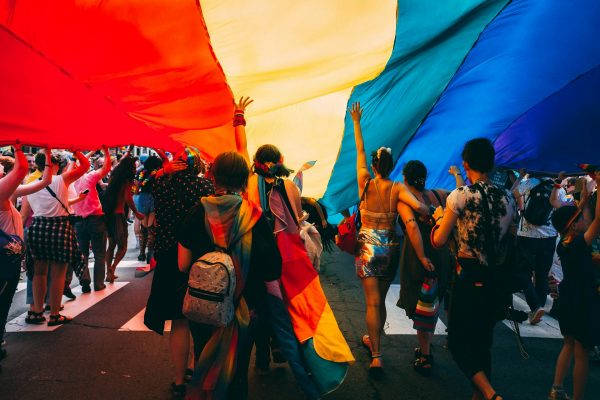The arguably correct answer to the snarky “who is the woman and who is the man in the relationship” question that plagues romantically involved Queer folks of the same gender is: “Neither. That’s the point.” This is a subversive answer to an invasive and wrongheaded question; it (hopefully) indicates to the asker that the question was inappropriate and (hopefully) shuts the conversation down; rarely does it actually challenge head-on the gender binarism questions which it promotes. Found both in dominant society and within Queer sub-cultures–is the assumption that there must be some inherent gendered relationship dynamic; one partner must be or is expected to be, feminine to a certain degree (despite their actual gender), and the other must be or is expected to be, masculine to a certain degree (despite their actual gender). Ever-present buttresses need not even be mentioned at this point, as they are glaringly visible, and becoming more so as movements progress.
Spartacus, a Starz Original series, follows the lives of Gladiator-slaves in one ludus and their eventual uprising and subsequent escape from slavery. Like anything, especially media-related things, nothing is completely unproblematic (i.e., the show is set in the Mediterranean, but for some reason actors talk in seemingly forced Eurocentric accents, to name one example) but I do believe Spartacus is underrated in this respect. Characters of Color abound, all nuanced, and relevant beyond tokenism. In the first three seasons, there are arguably more women protagonists/antagonists (‘main characters’) than men, and though many of those women are manipulative and secretive –which could be read as using their ‘feminine wiles’–men are as well, as it’s relevant to the plotline and their positions of power within the ludus and general social standing, not merely frivolous misogyny. It has the single most respectful depiction of a post-rape relationship I’ve ever seen. The show is also progressively Queer.
Throughout the show’s erotic scenes–there’s a lot of those– there is plenty of Queer sex. Consistently. Just as much, and just as erotic, as the expected frequency of heterosexual eroticism. There’s no frame of abnormality or ‘Exception to the Rule’ regarding the (perceived) validity of Queer relationships put up against the (perceived) validity and (perceived) normalcy of cis-het relationships. And, my goodness, there is a significant, wonderful, refreshing lack of default masculine/feminine dynamics. I’ve had cis-het folks critique my opinion on that saying that in the time period and location Spartacus is set, there was no concept at all of Queer sexuality, thusly no representative relevance or reflection, because “everyone was having sex with everyone all the time.” (We can discuss how problematic that statement is later on.) Still, I’ve yet to hear this critique go deeper than a singular blanket statement; anyway, that statement would indicate, and be, one form or another of polysexuality, which is a concept of sexuality.
With the exception of two characters who both die near the beginning, Barca and Pietro, who do have a masculine/feminine and potentially dominant/submissive relationship dynamic, Queer relationships between same-gendered characters are presented, void of the expectation of femininity complimenting and properly interacting romantically with only masculinity–and vice versa. Casual, non-romantic, sexual exchanges between women in Spartacus are also refreshing, considering the way relationships between women are generally viewed as more committed and emotional and focused lesser on sex than non-sexual expressions of affection. (Unless, that is, they are being hypersexualized.) In fact, as gladiators (a traditionally very ‘masculine’ role) romantic tenderness between the main Queer couple, Agron and Nassir, blurs what it means to be masculine or feminine in a romantic relationship, what gender roles in a relationship are, what they mean, and why they mean it. Agron and Nassir display a relationship based on reciprocity, caring, providing, supporting, tenderness, affection, and ultimately survival without assigning a fixed meaning to them–other than love.






